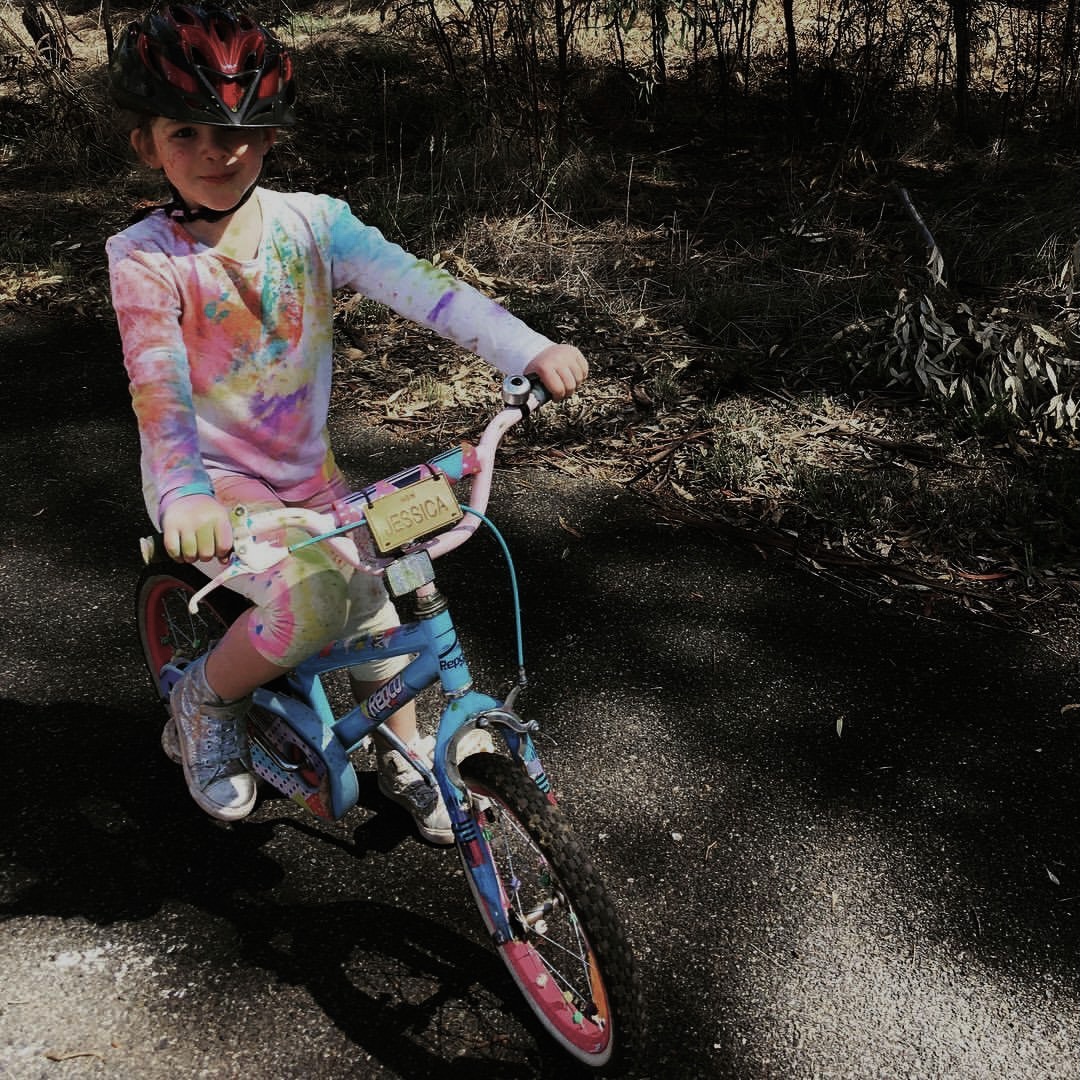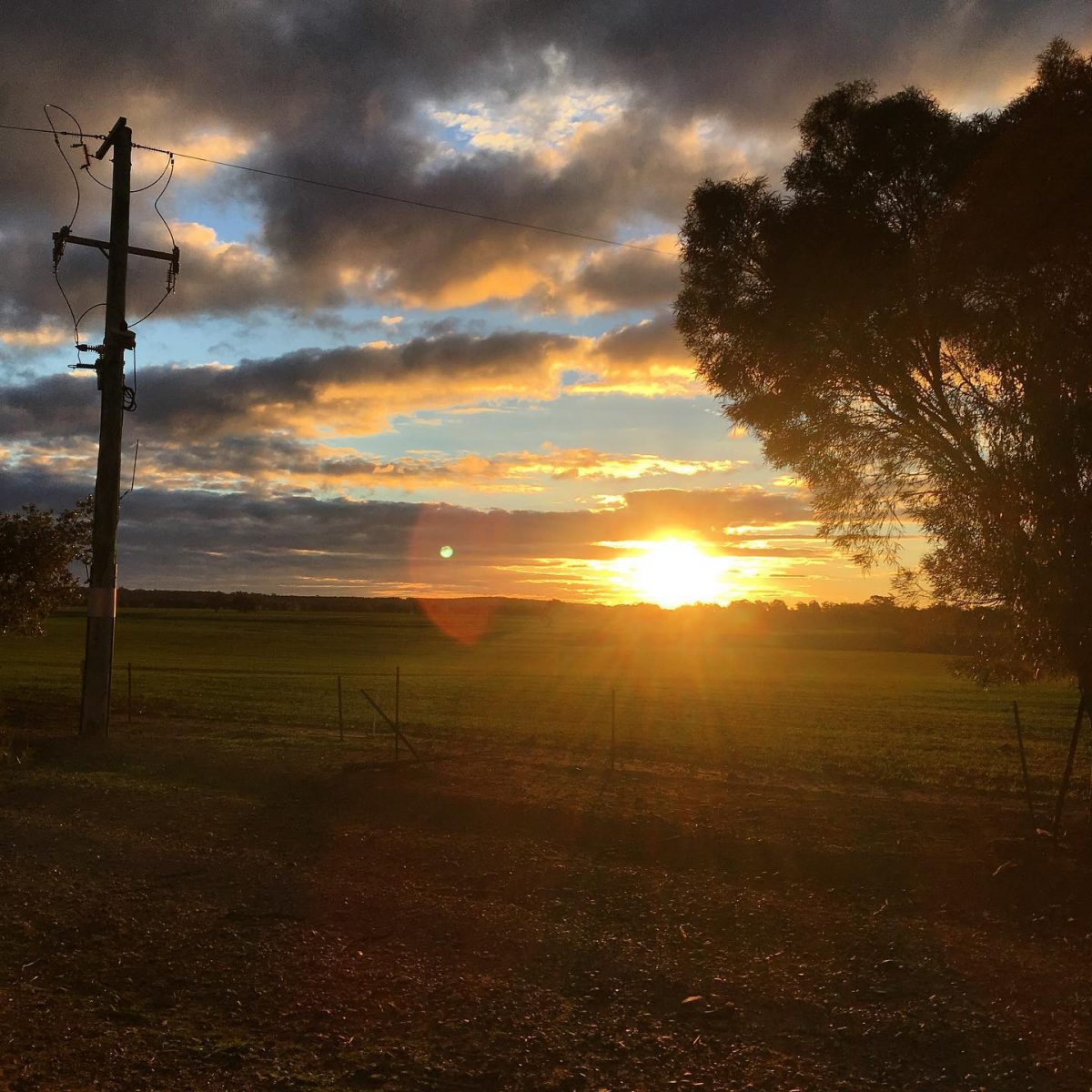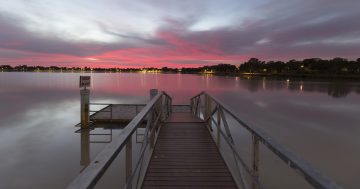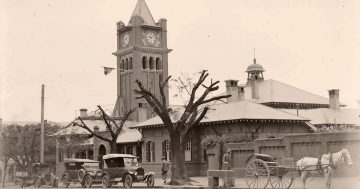
Meghan Hardie says her daughter Jessica has a tough time in the dark during the March mornings. Photo: Meghan Hardie.
As clocks are poised to be wound back an hour this Sunday (2 April) in NSW, debate has once again begun over whether six months of daylight saving disadvantages rural communities.
“I’ve been getting up in the dark for a month … just to get my child on the 8 am school bus,” Tallimba farmer Meghan Hardie says.
While there’s often been jokes about Queenslanders thinking the time change fades the curtains and confuses the cows, Mrs Hardie says there are legitimate grievances. The dark mornings in March and October cause problems for farming families in the Riverina, where the sun rises later than it does on the east coast and people need to do chores on their property before commencing their work and school days.
Up until 1995, daylight saving in NSW was for just four months of the year, beginning in late October and ending in early March. In 1996, the full month of March was swallowed by daylight saving, and by 2008, October was added as well.
“It’s just so excessive,” Mrs Hardie said. “Taking that month off either side would be great … everyone is just focused on their own life. If we just said let’s start in early November instead of October, nobody would really notice.
“Animals don’t care about what our clock says. They’re doing what the sun says. On the drive to work, I’m dodging animals all the time.”

The timing of sunrises and sunsets in rural areas is important, says Mrs Hardie. Photo: Meghan Hardie.
These problems have often been raised by rural MPs in NSW Parliament. In November 2021, Tweed MP Geoff Provest moved a motion arguing daylight saving was six weeks too long.
“In all honesty, having young kids getting up in the dark and undertaking anything more than a 40-kilometre drive to get to school means they are leaving in the dark and getting home in the dark. There is no benefit in extending daylight saving. It is a major issue that is having a social impact on families,” he said.
The motion was supported by a number of other politicians who represent regional electorates, who claimed those in Sydney struggle to understand the impact on their constituents.
On Wednesday 29 March, the sun rose in Sydney at 7:03 am. But in the Western Riverina town of Hay, it didn’t rise until 7:30 am. This difference impacts farming families, Mrs Hardie says.
“My daughter Jess is up at 6:30 am in the morning; she has to feed the chooks and collect the eggs in the dark … in Weethalle, children have to take the bus to school at 7:45 am, so you can have kids waiting for the bus in the dark.”
She believes we have a lengthy daylight saving period because people in the city like it that way, as they’re able to extend their leisure activities into the night.
“Why are you wanting to play golf at 8 pm? It’s 2023. If you want to play tennis, just turn the lights on,” she said.
In 2021, Maclean resident Carolyn Doyle put a petition garnering 890 signatures to NSW Parliament arguing for a reduction in “the length of the daylight saving period from six to four months”. She pointed out there was a referendum in NSW in 1972 to have four months of daylight saving, but residents of the state have never voted to extend it to half the year.
There was no response from the NSW Government, but do you think Ms Doyle makes a valid point? Have your say in our poll.










